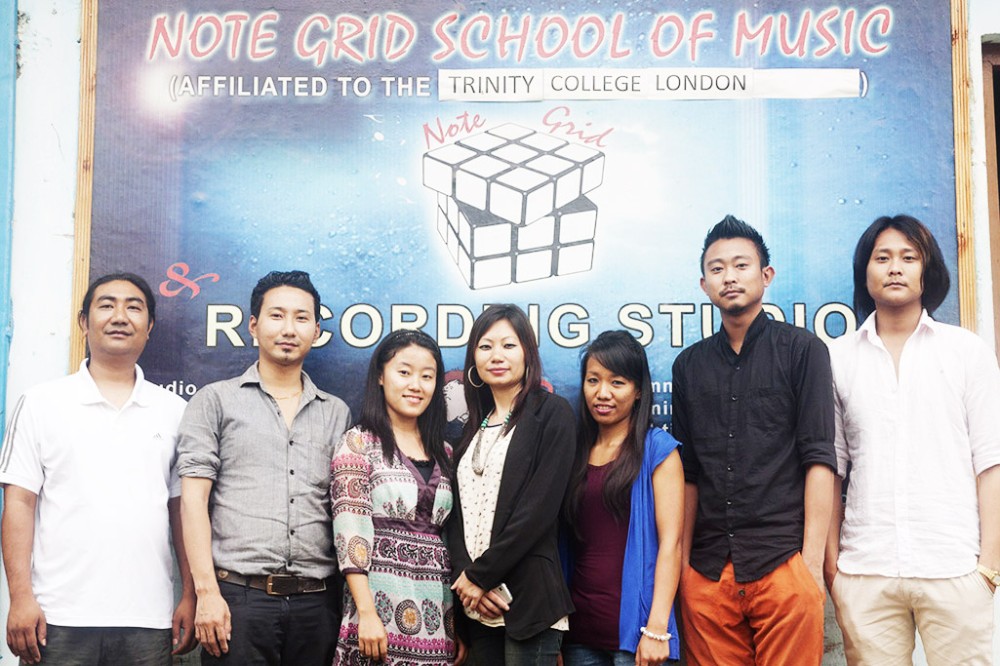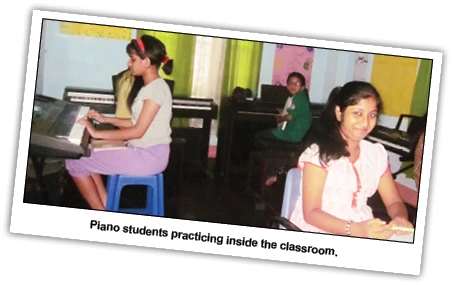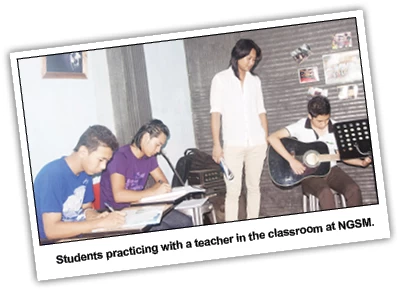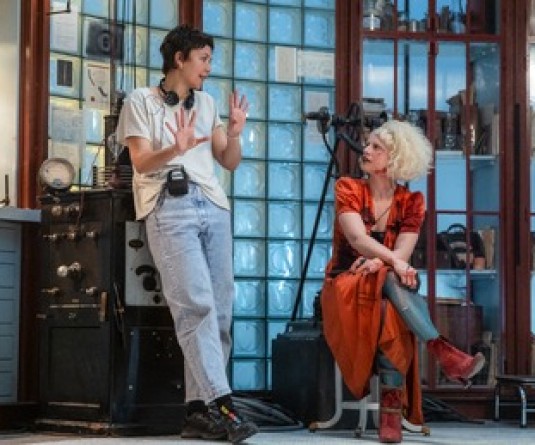Teachers and staff of Note Grid School of Music.

Inside the rugged exterior of Note Grid School of Music or NGSM in Dimapur, is a world of music waiting to “polish and nurture the raw talents” of young Nagas. The violin, drums, piano, guitar, and vocal are all taught by renowned Naga musicians, including vocalist Moanungsang Lkr, the first Naga Idol and present and former members of local bands like Insipid, Nightingales, and Melodrama. Founded in 2009 by Longden Longkumer, a classical guitarist and former member of Abiogenesis, NGSM offers training in classical and rock & contemporary music, and is affiliated to Trinity College, London and Rockschool, UK, leading international exam boards. 
In an interview with The Morung Express, the administrator of the school and sister of Longden, Alemkala Longkumer describes the school as “humble beginning”. She mentions her brother had to undergo several hardships, with limited musical platforms and no knowledge of musical theory while striving to become a musician in his early years. “He (Longden) did not want the youngsters to face those problems.” She further explains that was the reason Longden started the school to give youngsters “ground to polish their talent and use them positively” after he returned from Bangalore, where he studied classical guitar from Bangalore School of Music.
Alemkala says Note Grid started with a vision to make music available to everybody, thereby keeping the fees to minimal. “Everybody has notion that music is expensive and is only for the rich. We want to make it available to everybody.” She confides she has students coming in from different backgrounds between the ages of 6 to 40.

When Alemkala joined the school in 2011 as the administrator, the attitude of the Nagas towards music was narrow as she points out. “Students no doubt were apprehensive initially. Parents were skeptical that it will only mar their children’s future.” However, she says things are better with parents being supportive in children pursuing their dreams and careers in music.
Meanwhile, sharing the challenges, she says it is difficult to run a music school without sponsors, while acknowledging government’s Music Task Force’s efforts, through which Note Grid too got a digital piano and two keyboards last year. “Such help from government and individuals pushes the schools to deliver the best to the students.” She further asserts that with government’s help and parents’ support, many avenues are opening up in the field of music in Nagaland.
Talking about the scene of rock music in Nagaland, Alemkala suggests the mushrooming of rock bands in the state in recent years have helped very little in changing the general attitude of associating rock music with all things evil. “Children want to learn, but parents restrict them,” she says about the scenario of Note Grid, which has all the departments under Rock music. Partly blaming the older rock musicians of not being a “good role model”, she advices rock bands should start getting into recording and make “good music”, to set another good example and make parents change their attitude.
By Alemkala’s admission, piano is mostly preferred in Note Grid. “Piano is played at churches. So, parents have notion thet children will not stray by learning it.” NGSM also has recording studio which has released about 100 local albums since its inception in 2011. The school also plans to open it to “outstanding” students to record their own albums from this year.
Attributing the teachers as the “very foundation” of the school, Alemkala expresses optimism that the school will grow even though there is no set goal. Last year, 14 classical and 8 rock students took the International board exams from the school.






